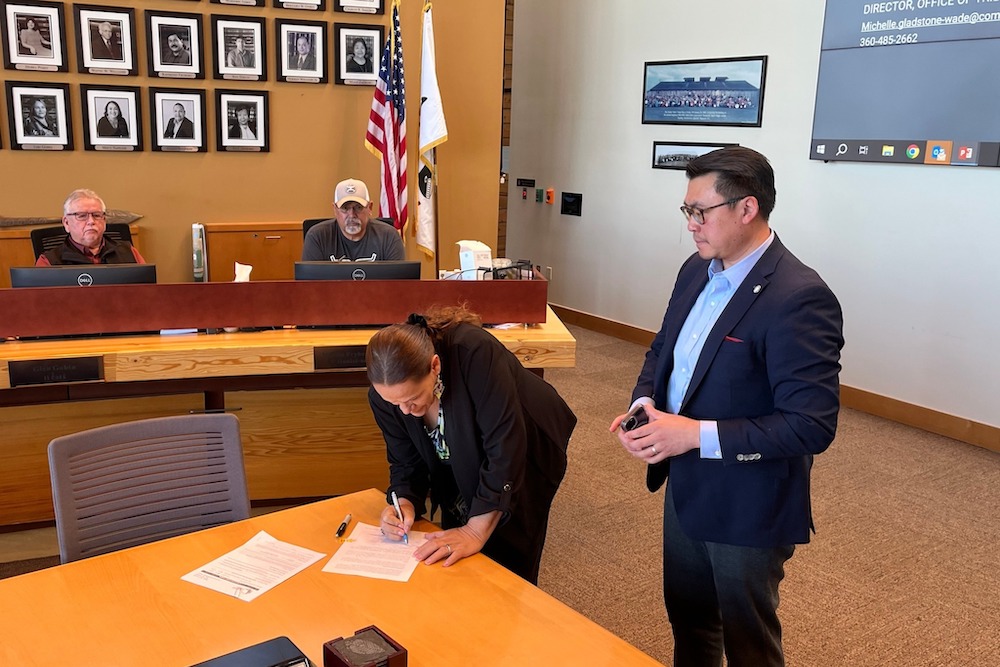
- Details
- By Tribal Business News Staff
- Economic Development
The Tulalip Tribes and the Washington State Department of Commerce signed a government-to-government memorandum of understanding (MOU) on May 1 to establish a formal working relationship between the tribal government and the state agency.
The agreement removes administrative barriers, improves communications and implements culturally appropriate measures for data privacy and security, officials said in a press release.
Tulalip Tribes Chairwoman Teri Gobin said the deal represents a measured step toward strengthening ties between tribes and state governments.
“We are grateful for this next step in our working relationship,” Gobin said. “Tribes and states have a long history, not always positive. Agreements like this help us move forward in a good way.”
Commerce Director Joe Nguyễn praised the agreement for its potential to honor tribal sovereignty and enhance service delivery.
“Time and time again, we see the Tulalip Tribes enact their commitment to care for communities on and off their reservation,” Nguyễn said. “We are glad to strengthen our partnership, to memorialize the ways we can better honor their sovereignty, and to work alongside people who have cared for communities from time immemorial.”
This agreement is the fifth such arrangement the Commerce Department has executed with tribal governments and marks the second formal MOU signed by the Tulalip Tribes with a Washington State agency. The Commerce Department has also signed similar MOUs with the Kalispel Tribe of Indians, Cowlitz Tribe, Confederated Tribes of The Colville Reservation, and the Confederated Tribes of the Chehalis Reservation.
An earlier accord between the Tulalip Tribe and the Washington State Department of Health centered on tribal data sovereignty, providing the tribe with enhanced access to public health data. The agreement, finalized earlier this year, will support outbreak investigations and community health assessments, and includes tribal consent provisions for data use. State officials and tribal leaders said these agreements reflect efforts to streamline processes and improve intergovernmental collaboration to better serve communities.
“At Tulalip, we believe government exists to serve the people,” Gobin said in a statement. “At the end of the day, by reducing the administrative burden to access resources, we will be able to help more people.”
